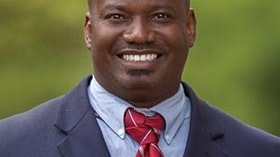Homepage
•
Learning Library
•
Blog
•
Derek McCoy: Educators can perform superhuman feats
Expand breadcrumbs
Expand breadcrumbs
- Learning Library
- Blog
- Derek McCoy: Educators can perform superhuman feats
- Homepage
- •
- Learning Library
- •
- Blog
- •
- Derek McCoy: Educators can perform superhuman feats
Derek McCoy: Educators can perform superhuman feats
By Tim Douglas
July 14, 2015








